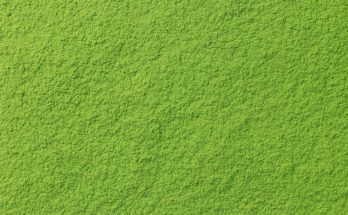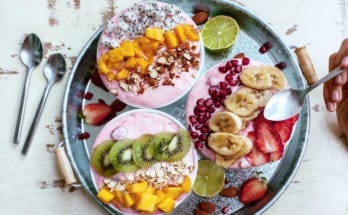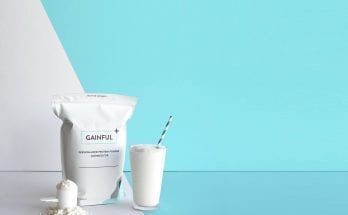Alright, so odds are, you drink coffee. Most of us do! It’s kind of like a cure-all, go-to for oversleeping, hangovers, morning crash, mid-day crash, evening crash, and pretty much any crash that’s not a car crash. And even then, it doesn’t hurt. Right?
The issue is, it really does drag down our health. Our old friend, Anxiety, loves coffee. So does sleep deprivation, dry skin, imbalanced gut microbiome, and fatigue.
But this isn’t a conversation around cutting coffee off cold turkey. It’s about having options in your pantry that help you turn an intentional moment out of a knee-jerk reaction when choosing your morning boost.
Out of a number of options, the winning alternative for coffee drinkers is matcha. If you want to read more about the alternatives and why matcha won you can do so here, but this article focuses on a 1 to 1 comparison between coffee and matcha.
Remember, it’s not a zero-sum game. You can have both, but, as you’ll see, matcha offers too many benefits to pass up. You may even want to shake things up with a 30-day matcha challenge!
What are they?
Matcha is the powdered form of green tea, native to Japan, with a globally increasing popularity. It has a bitter taste profile as coffee does, but offers a deep umami taste. On the other hand, coffee is one of the most widely consumed beverages globally (1, 2).
Nutrient composition
Both Matcha and coffee contain a minimal number of calories when prepared plain (without sugar, cream, flavored syrups, or milk).
To prepare a cup of Matcha, mix a teaspoon (2g) of the matcha powder with 2 ounces of hot water. Coffee, on the other hand, is made with hot water.
The table below shows the nutrient composition of a 240 ml cup of brewed coffee and a 60ml cup of Matcha (3, 4):
| Coffee
240ml |
Matcha
60ml |
|
| Caffeine | 96 | 19 |
| Calories | 2.4 | 5 |
| Fat | 0g | 0g |
| Protein | 0.3g | 1g |
| Fiber | 0g | 0g |
| Sugar | 0g | 0g |
| Carbs | 0g | 0g |
Also, coffee contains approximately 96 mg of caffeine in each 240 ml cup. On the other hand, Matcha includes 19 – 44 mg in every 60 ml serving (3, 5).
You can see that the caffeine content in Matcha varies broadly, and this is due to the amount of powder, the freshness and variety of the leaves used in its preparation, brewing time, and water temperature (5).
Both Matcha and coffee have a bitter taste. Matcha has a somewhat earthy or grassy flavor, while coffee is well-known for its roasted and, in some cases, chocolate aroma and flavor.
Five reasons why you should drink Matcha instead of coffee
- The caffeine high in Matcha is better than that of coffee
What do I mean by “better?” Well, the caffeine high in coffee is somewhat toxic to the body. It begins with a blast and then causes a crash. Coffee shoots up your insulin and adrenaline glucose levels. This results in nervousness, jitteriness, and in some cases, hunger pangs.
But none of this occurs when you drink Matcha. You can thank the high concentration of L-Theanine for that. It causes the body to absorb the caffeine more slowly but blocks receptors, removing the usual overwhelm from the equation. Instead, there’s this calm alertness that you experience when you drink Matcha, all achieved with just one-sixth the caffeine concentration of coffee (25mg compared with 150mg cup of coffee – typical daily coffee intake).
- You’ll have a better dental hygiene
There’s nothing to compare here. Matcha is healthier on your teeth: it kills the bacteria responsible for plaque, making it an excellent ally for daily oral hygiene. Hundreds of Japanese dentists have recommended a daily cup of Matcha for everyone. And you don’t get to suffer the enamel staining and coffee breath that coffee is known for.
- Glowing Smoother Skin
For centuries, Japanese women have used it as a facial mask. The antibacterial properties of Matcha give your skin a unique natural glow. That’s not only true for the matcha face masks – matcha clears out bad bacteria in your gut microbiome to improve internal health which can directly improve the quality of your skin
- Lots and lots and lots of antioxidants
Matcha isn’t known as a superfood for no reason. The substantial amount of flavonoids, catechins, and polyphenols give it that title. As a result, there’s plenty of epigallocatechin gallate (EGCG) in it. which has a number of health benefits, including its role as a remarkable cancer-fighting agent.
- Making matcha is super easy
Matcha is somewhat challenging to make, at least that’s what they say: but wait a minute: scooping sifted tea into a cup, adding hot water? and using a handheld frother to mix? That’s a little more than 30 seconds to achieve perfection.
But what about coffee? Either you’ll have to invest in an easy pod-machine that’s terrible for the planet like Nespresso or you’ll have to make your own filter coffee and wait for it to brew, or invest in a commercial-style machine. Either way, just because we’re used to it, doesn’t mean it’s technically easier.
Takeaway
Matcha doesn’t treat, cure, or prevent any disease. However, it is a superfood version of traditional green tea with a wide range of health properties. And because it doesn’t have any known side effects or downsides, there is not much to lose by trying Matcha, but there IS a lot to gain.
We’re not saying that you should give up coffee totally (unless advised by your doctor), but try Matcha and the only thing you’ll lose will be heart-pounding jitters, bad breath, and the 3 pm shlumps.



